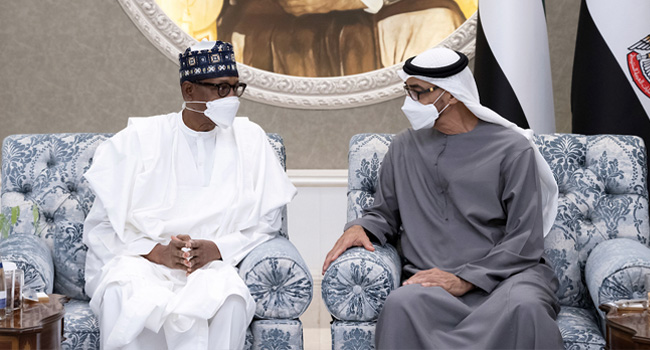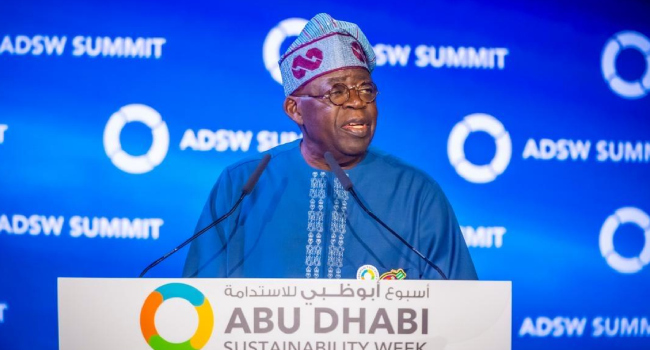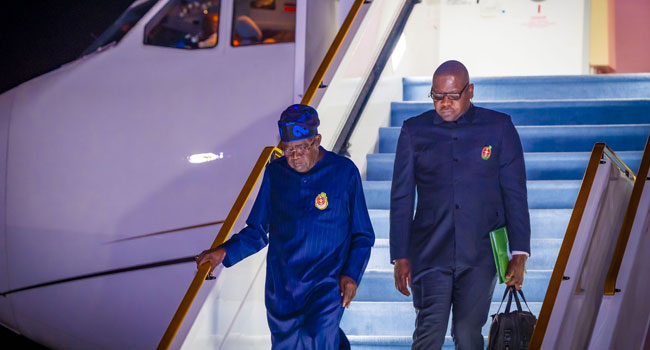
President Muhammadu Buhari has paid a condolence visit to the new President of the United Arab Emirates and Ruler of Abu Dhabi, Sheikh Mohamed bin Zayed Al Nahyan, on the passing of his predecessor, Sheikh Khalifa bin Zayed Al Nahyan.
During the visit, President Buhari expressed his condolences and that of Nigeria to Sheikh Mohamed and congratulated him on his election as President.
He assured the new UAE leader of his determination to do more to ensure the growth of the strategic partnership between Nigeria and the Asian country.
President Buhari also hopes that under Sheikh Mohamed the two countries will continue to actively champion a vision of sustainable security, strengthen counterterrorism cooperation, facilitate trade and investment, and promote prosperity and development.

Senior Special Assistant to the President on Media and Publicity, Mr Garba Shehu, said in a statement on Saturday that in the seven years of the Buhari administration, the two countries “have actively conducted bilateral dialogues”.
These dialogues, according to him, have led to several agreements and Memoranda of Understanding that have paved the way for further cooperation, mutual understanding and progress in many aspects of their bilateral relations.
President Buhari had left Nigeria for the UAE on Thursday, six days after the death of Sheikh Khalifa.

Sheikh Khalifa, who was rarely seen in public died on Friday, May 13 aged 73 after battling illness for several years.
The Ministry of Presidential Affairs announced 40 days of mourning, with flags at half-mast from the day of his death and work was suspended in the public and private sector for the first three days.
Sheikh Khalifa took over as the UAE’s second president in November 2004, succeeding his father as the 16th ruler of Abu Dhabi, the richest of the federation’s seven emirates.
He has rarely been seen in public since 2014, when he had surgery following a stroke, although he has continued to issue rulings. The cause of death was not immediately released.
The UAE, a former British protectorate that was founded in 1971, has gone from a desert outpost to a booming state in its short history, fuelled by its oil wealth and Dubai’s rise as a trading and financial centre.
The Arab world’s second-biggest economy behind Saudi Arabia has also begun to wield growing political influence, filling a space ceded by traditional powers such as Egypt, Iraq and Syria.
The country of 10 million also joined military campaigns in Libya and Yemen and broke ranks with much of the Arab world to establish ties with Israel in 2020.
The bearded Sheikh Khalifa had cut a frail figure on his occasional public appearances, while his Sheikh Mohamed hosted world leaders and led diplomatic forays abroad.
The late Sheikh Khalifa, who had no formal higher education, led the UAE as Dubai emerged as a tourism and trade hub and Abu Dhabi pumped oil as a key OPEC player.
He came to the rescue of Dubai when it was hit by the global financial crisis in 2009, extending a multi-billion-dollar lifeline to the debt-laden emirate.





